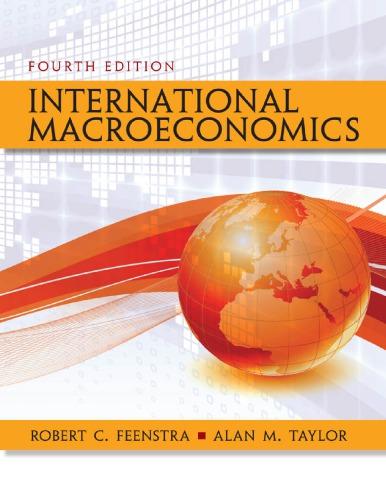5. Describe the different ways in which the government may intervene in the forex market. Why does...
Question:
5. Describe the different ways in which the government may intervene in the forex market. Why does the government have the ability to intervene in this way, while private actors do not?
Consider a Dutch investor with 1,000 euros to place in a bank deposit in either the Netherlands or Great Britain. The (one-year) interest rate on bank deposits is 1% in Britain and 5% in the Netherlands. The (one-year) forward euro–pound exchange rate is 1.65 euros per pound and the spot rate is 1.5 euros per pound. Answer the following questions, using the exact equations for uncovered interest parity (UIP) and covered interest parity (CIP) as necessary.
a. What is the euro-denominated return on Dutch deposits for this investor?
b. What is the (riskless) euro-denominated return on British deposits for this investor using forward cover?
c. Is there an arbitrage opportunity here? Explain why or why not. Is this an equilibrium in the forward exchange rate market?
d. If the spot rate is 1.5 euros per pound, and interest rates are as stated previously, what is the equilibrium forward rate, according to CIP?
e. Suppose the forward rate takes the value given by your answer to (d). Compute the forward premium on the British pound for the Dutch investor (where exchange rates are in euros per pound). Is it positive or negative? Why do investors require this premium/discount in equilibrium?
f. If UIP holds, what is the expected depreciation of the euro (against the pound) over one year?
g. Based on your answer to (f), what is the expected euro–pound exchange rate one year ahead?
Step by Step Answer:

International Macroeconomics
ISBN: 9781319061722
4th Edition
Authors: Robert C Feenstra ,Alan M Taylor






